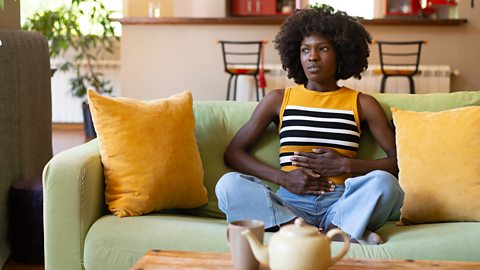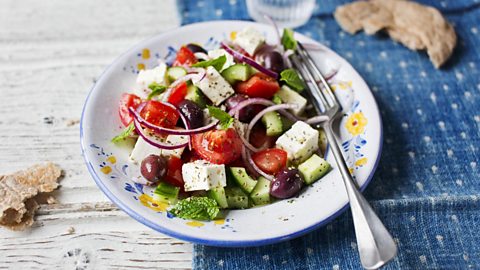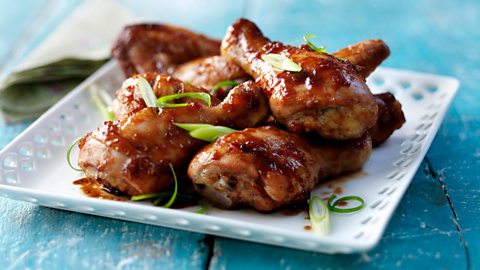Why do some people get food poisoning more easily than others?
Do you have an iron stomach that doesnât seem to be affected by dodgy food or do you get an upset tummy from the slightest thing? There could be a reason for thatâ¦

The UK reports 1 million cases of food poisoning every year, according to the . And each summer there is an increase in cases. This could simply be down to the fact that , but the FSA thinks it could also be a potential consequence of a seasonal increase in uncooked or cross contaminated barbecue food.
But whether itâs due to unsafe barbecue food, careless food storage or just eating leftovers that are slightly dodgy, some people are more likely to get food poisoning than others. Hereâs whyâ¦
Immune systems vary
Dr Tristan Cogan, senior lecturer in infectious disease, Bristol University explains, âeverybodyâs immune system is different â one person may have been exposed to a bacterium before and have some immunity to it.â
There are other factors that can affect your immunity levels, too, âincluding some genetic ones,â says Dr. Kimon Andreas Karatzas, associate professor in food microbiology, University of Reading, adding: âThe acidity of the stomach is different from person to person and clearly a more acidic stomach can kill more pathogenic microbes and offer protection.
âThe gut microbiota is also important, especially for pathogens like clostridium perfringens and this varies from person-to-person.â
Greek salad
Before prepping your salad just make sure you rinse your vegetables and youâll remove the bacteria risk

âPregnant women, infants, people with weakened immune system due to a treatment and the elderly are more at risk of food poisoning,â says Karatzas, explaining: âThe main reason is their immune system is low and cannot protect them very well from foodborne pathogens.â
âAge plays a big role,â adds Cogan. âWith very young and older people whose immune systems might not be so good being more likely to get more ill. We also know that thereâs more disease seen in the late teens and early 20s, though thatâs probably due to leaving home, experiencing cooking for the first time and experimenting with what and where you eat.â
Some foods are riskier than others
The that âany type of food can cause food poisoningâ. However, unsurprisingly, some foods are more often responsible including chicken and shellfish (including oysters), says Karatzas. But thereâs another common culprit that might surprise you.
âInterestingly, although salads are very important for their nutritional value, they are major contributors of food poisoning, but consumers do not expect this.
âMicrobes causing food poisoning also love nutritious foods,â he explains.
Some bacteria are more harmful than others
Cogan explains: âThe big differences in response to food poisoning are down to the type of bacteria.
âBacteria like toxigenic E. coli as weâve seen in recent outbreaks are some of the nastier ones.
âSome bacteria will make you feel ill for a few days, while others can attack different organs in your body and cause more severe disease.
Karatzas explains that â is the most common cause of food poisoning in the UKâ and this is frequently associated with chicken.
âOn the other hand, while salmonella is the second most common cause, food poisoning from eggs has reduced dramatically as levels of salmonella have almost been eliminated from the British Lion eggs.â
Talking about the severity of symptoms, Karatzas explains: âAlthough campylobacter is the most common cause of foodborne illness, listeria monocytogenes is the most deadly one killing close to who contract it.â
Easy bbq chicken
You donât have to give up your barbecue food, just make sure itâs properly cooked through

What about the five (or three) second rule?
If youâre a food risk taker, knowingly eating food thatâs either past its best or has been questionably stored, could make you more vulnerable. And we hate to break it to you but the âfive second ruleâ doesnât really exist.
Cogan explains: âIf you drop food on the floor bacteria will stick to it immediately, they are incredibly good at sticking to things. The longer you leave it, itâs true the more bacteria may attach, but you have no way of telling how many bacteria are now attached to the food you dropped, what they are or how sick they could make you.â
Dr Xandâs Con or Cure
This episode of Com or Cure highlights why the three second rule doesnât work

How to protect yourself from food poisoning
âThe number one precaution is keeping cooked, raw and food meant to be eaten raw apart in the kitchen and when they are being stored,â says Cogan, before adding: âCross contamination between raw and cooked food by contact or from chopping boards and utensils is a huge source of food poisoning.
âThis rule goes for unwashed vegetables too, wash them before preparing them. Donât wash raw meat, though, you will just splash any bacteria on it around the kitchen.â
Likewise, Cogan warns against trying to increase your immunity through intentionally consuming food that might give you food poisoning.
âItâs true that populations of people who are routinely exposed to diseases build up immunity. And thereâs a theory that eating small amounts of food thatâs got bacteria in will help you build up immunity, but the people who are telling you that are those who survived doing it.
âIt would be very difficult to judge how much bad food would be safe. In the populations where we see immunity to disease because of exposure to bacteria we also see significant mortality from these same diseases. Doing this on purpose is a high-risk strategy.â
How to treat food poisoning
âDrink plenty of water to avoid getting dehydrated,â says Cogan. âAnd stay off school or work until you havenât been sick or had diarrhoea for two days â as some viruses can be spread person-to-person as well as on food.
âIn most cases your body will fight the infection off in a few days. If you canât keep fluids down, are dehydrated, or are bleeding call 111,â adds the expert.
And when youâre recovering, youâll want to adjust your diet, finishes Cogan: âEat small light meals to start with. Low fat and low fibre until you start to feel better. In young and older people rehydration solutions can help recovery too and pharmacists can advise on this.â
Originally published July 2024